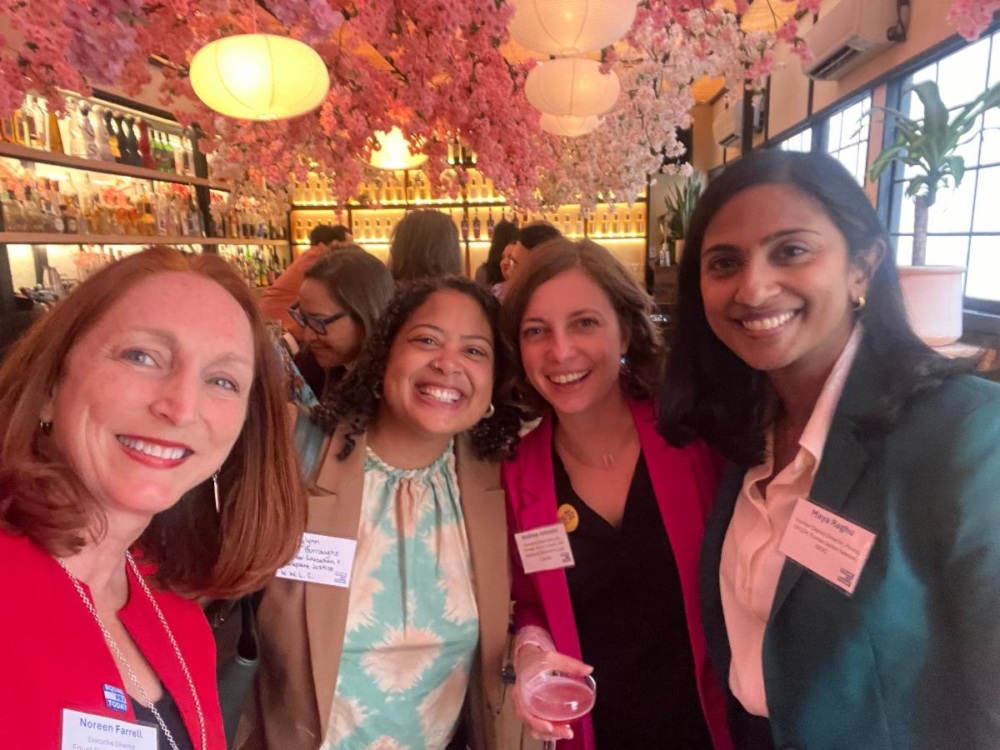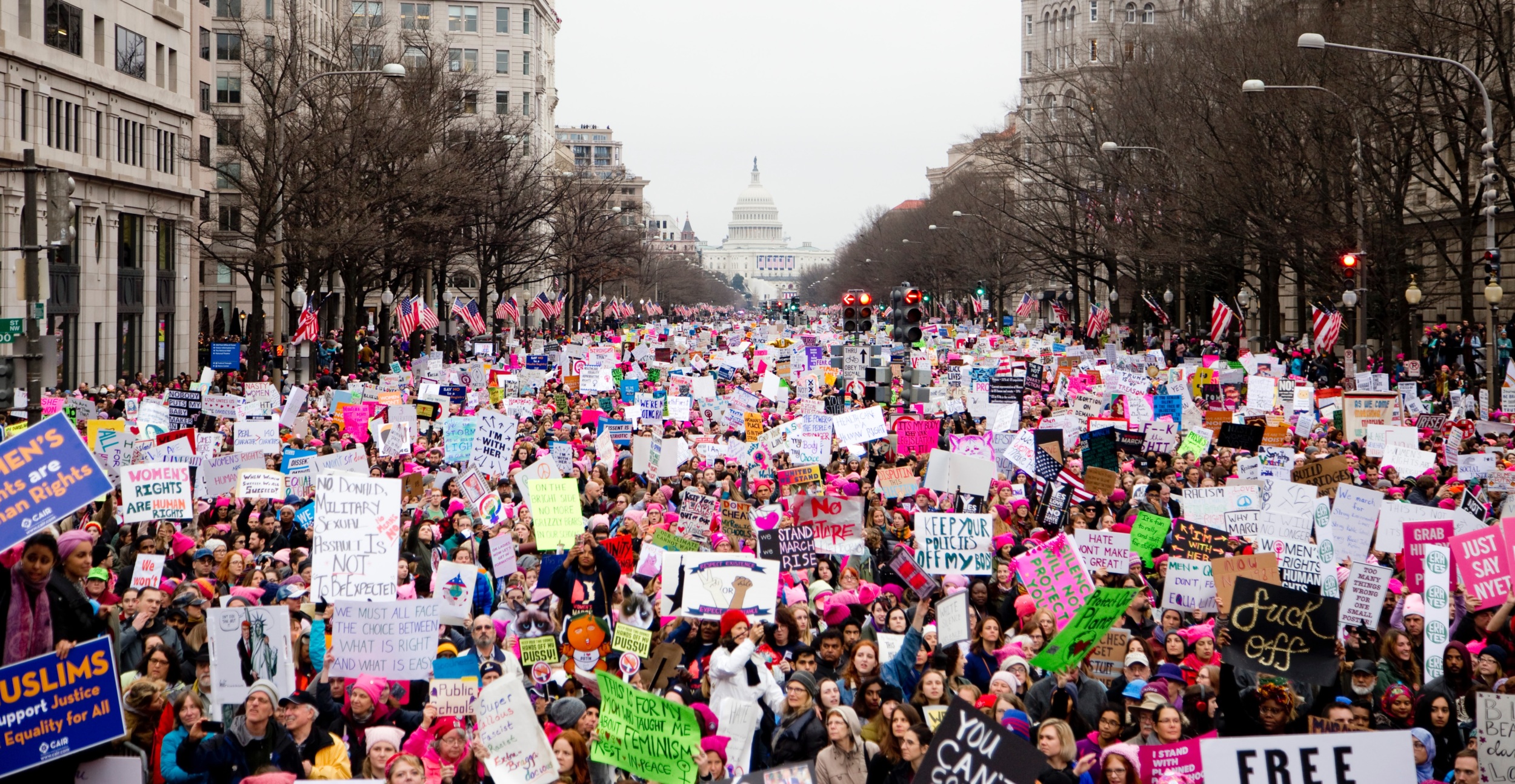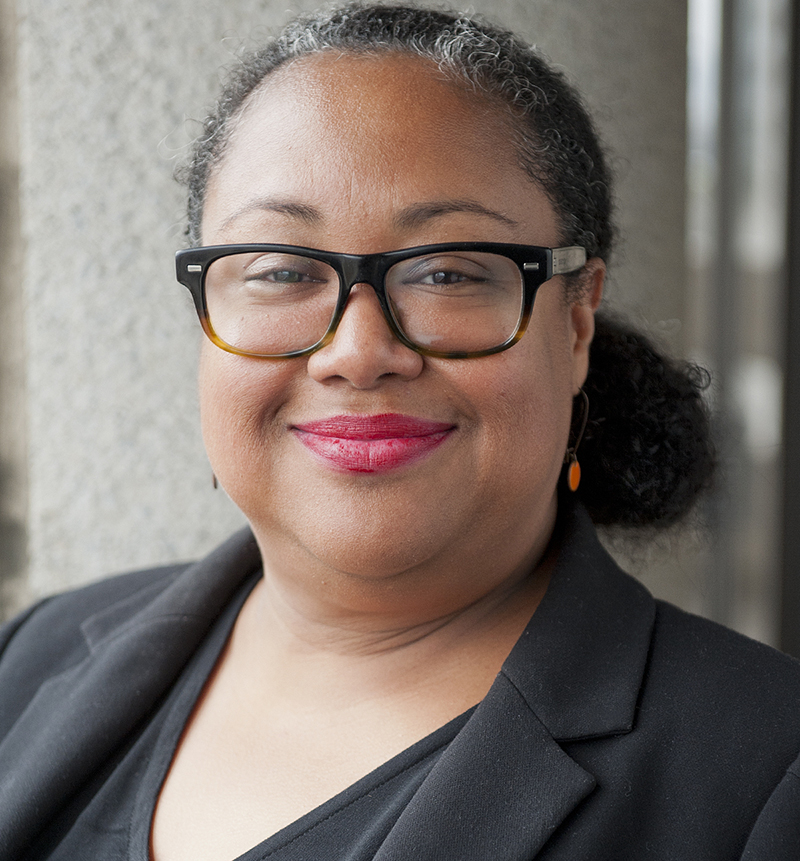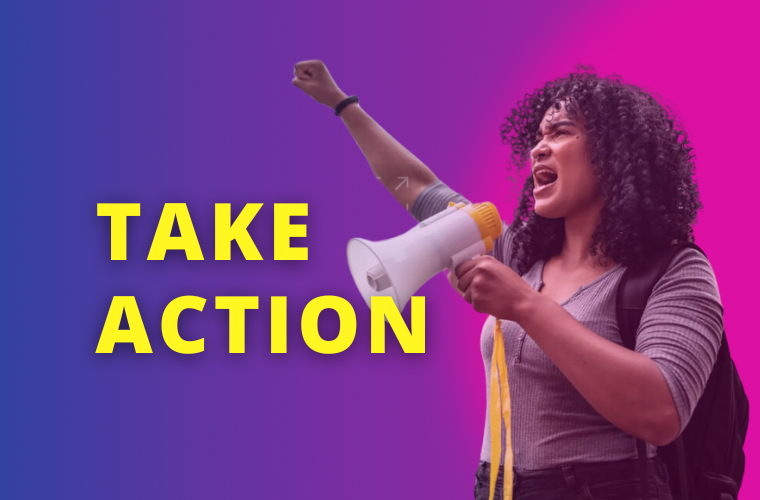

Women’s March Series: Why I’m Reclaiming the Women’s March for Black Feminist Bad Assery
The Women’s March Series
Equal Rights Advocates is among the thousands of organizations and millions of people who have joined three Women’s Marches since 2017. Many of us share a common belief that freedom and equality belong to all of us. Many of us call for change to reach both. But each of us march (or don’t march) for different reasons. Each of us experience oppression, exploitation and fear as differently as we experience joy, abundance and safety.
As the Women’s March approaches its fourth year, we have observed what happens when some people who have designated themselves as Women’s March leaders try to speak for all of us. At Equal Rights Advocates, we reject this effort. The beauty of the Women’s March is inclusion as defined by each person who steps alongside us, even if there is disagreement among us. Equal Rights Advocates does not toe an organizational line when it comes to the Women’s March. We encourage every staff member to express their views. We publish a few here. They are beautiful, fierce, and independent. This is our movement, and we are proud of it.
– Noreen Farrell, Executive Director
———

By Delia Coleman, Deputy Director
"The feminist movement has always been Black. Black women's history IS feminist history, and our progress is feminist progress."
As a skeptical, cranky Gen X-er, I give everything a side eye. As a biracial Black feminist, my side eye is extra sharp. So the 2020 Women’s March presents an interesting challenge.
I can either maximize the strength of my side eye to signal my critical stance of a monolithic (and simultaneously narrow) expression of identity politics. Or, I can use my side eye to take space and fully reclaim the presence of Black women in the movement for racial, economic and gender freedom. (Notice how I put all of that together.)
I believe that Black women (from the abolition movement onward) are at the foundation of feminism. We aren’t onlookers or occasional beneficiaries. We are actors. Significant ones. One of the first books that politicized me as an undergrad was Paula Giddings’ When and Where I Enter: The Impact of Black Women on Race and Sex in America. Realizing that the civil rights and women’s movements were not stories originating with MLK and Gloria Steinem but rather narratives of unsung and brilliant Black women often from humble gritty beginnings was mind blowing — and life changing.
Realizing that the civil rights and women’s movements were not stories originating with MLK and Gloria Steinem but rather narratives of unsung and brilliant Black women often from humble gritty beginnings was mind blowing — and life changing.
Ida B Wells. Sojourner Truth. Harriet Tubman. Phyllis Wheatley. Lucy Parsons. And more. The Black woman who co-founded the American Woman Suffrage Association (which later became the organization Susan B. Anthony led.) The Black women of the block club movement to advance Black women’s economic and sociopolitical progress. The Black woman who founded the national domestic workers union. The Black women of the ladies garment workers labor movement. The queer Black woman who co-founded NOW. (Who was also the same queer Black woman who forged the racial civil rights theory that Ruth Bader Ginsburg later modeled for her groundbreaking gender rights work.) The Black women of the Student Non-Violent Coordinating Committee (SNCC) who led and trained white college students of the North to participate in radical direct actions against white supremacy and Jim Crow. The Black women now leading the fight to abolish the prison system. The Black women who created the reproductive justice framework. The Black woman who created the theory of intersectionality. The Black women who sparked the movement for Black lives. The Black women today who have delivered progressive and liberal political wins again and again.
I keep coming to the civil rights movement because, for Black women, fighting white supremacy IS a feminist and labor struggle. Black women cannot be free and autonomous if systemic racism and hegemonic racial oppression exists.
With all this history and more behind me, I’m going to be on Frank Ogawa Plaza on January 18 in Oakland. And I, a Black woman, will be snug in my secret knowledge: The feminist movement has always been Black. Black women’s history IS feminist history, and our progress is feminist progress. From the fields to streets of the Bay area, I am reclaiming this moment as MY march for freedom and radical change.
Recommended Reading: The Combahee River Collective Statement (1977)
———-
This piece is part of a series by Equal Rights Advocates staff about personal decisions whether to participate in Women’s March 2020. Read Finance Assistant Mei Mei Chan’s perspective, and Executive Director Noreen Farrell’s perspective.
Stay Connected & Take Action
- Get the Latest News & Information Sign up for Email Updates
- Sign Up for Action Alerts Join the Action Team
- Follow Us


